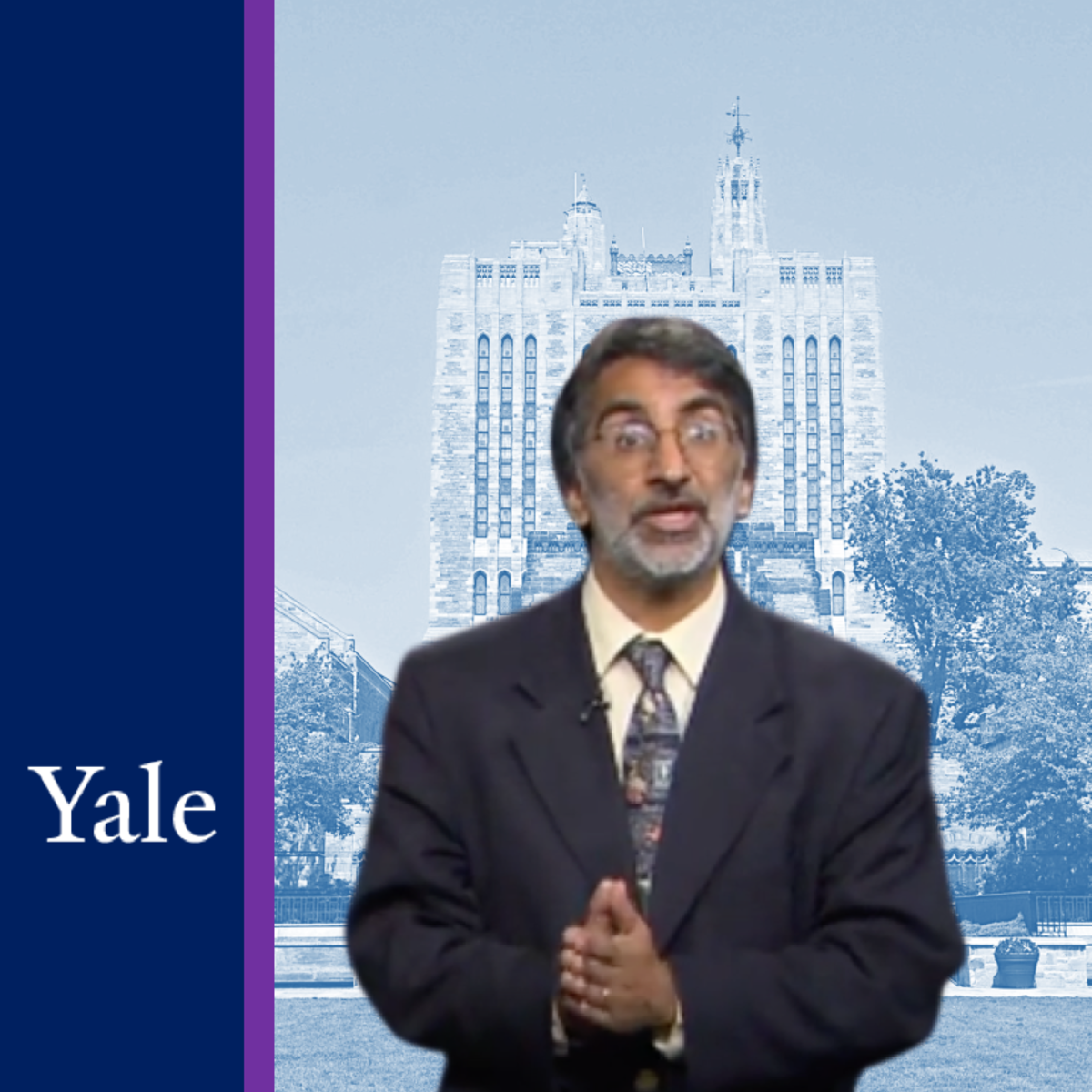Back to Courses









Law Courses - Page 4
Showing results 31-40 of 73

Take Action: From Protest to Policy
In Take Action, you will learn four strategies for transforming your activist work into policy change. First, we'll explore how to use the courts to mobilize constituents, raise awareness, gain information, and change the law. Second, we'll analyze the benefits of communicating your message across platforms and review a case study in cross-platform communication of a criminal justice reform message in the U.S. Third, we'll examine how to connect to power through stakeholder analysis and issue framing. Fourth, we'll appraise the benefits of working locally to generate wins, gain knowledge, and create meaningful change.
By the end of this course, you will be able to formulate a comprehensive plan for real world change. This course will engage you if you care about specific issues such as climate change, racial justice, or mass incarceration, or if you want a broader understanding of how the U.S. courts and justice system operate, how communications professionals think about social media strategy, how change-makers network with policymakers, or how local actors and positive deviants possess answers to complex social problems.
LEARNING OUTCOMES
-Recognize and explain policymaking terms
-Describe important policymaking places, people, and procedures
-Analyze law and policy documents and texts
-Evaluate the efficiency and effectiveness of policymaking actors and institutions
-Appraise the effectiveness of policy-oriented communications
-Identify policy stakeholders
-Communicate your policy-related ideas clearly
-Develop a plan of action to influence policy
INSTRUCTORS
Mary Alice Haddad, John E. Andrus Professor of Government; Professor, East Asian Studies; Professor, College of the Environment
Sarah Ryan, Attorney, Director of the Law Librarianship Program at the University of North Texas, and Associate Professor of Information Science

Property and Liability: An Introduction to Law and Economics
Think about the oldest and most familiar principles of American law, property and proportional liability, in a new and surprising way, and learn to apply economic reasoning to an especially important and interesting aspect of life.

An Introduction to American Law
This course will give you a glimpse into six different areas of American law: Tort Law, Contract Law, Property, Constitutional Law, Criminal Law, and Civil Procedure. You will gain insight into the complexities and dilemmas that arise from the application of law in different settings, and what is distinctive about American approaches.

Privacy in the Western World
Welcome to this course about privacy,
We are thrilled to see that you are interested and will provide you with a comprehensive study of this intriguiging subject. We hope this course will enthuse you to look further into privacy and personal data regulation. Especially in the light of recent events it becomes more important to know about your (alleged!?) rights and freedoms.
After showing you a number of interesting examples of privacy in recent events, this course continues to provide you with an historic introduction, and varying cases and court decisions. It will guide you through the cultural and legal changes in perception of privacy over time. Sometimes with a more technological perspective. Notably, in the Western world differences have accumulated over time and the differences between the USA and Europe will be explained extensively in the follow-up courses.
Through video lectures and quizzes we endeavor to build a solid foundation for you to construct a well-founded opinion on privacy. Last but not least we sincerely hope you enjoy the course!
Prof.mr.dr. Jan Smits

Legal Foundations for Entrepreneurs
By its nature, the law touches on many aspects of entrepreneurship, making it an applicable and versatile topic of study. For aspiring entrepreneurs, it's important to understand how to form the business and work with the initial customers. For active entrepreneurs, there are critical considerations on employment law and operating policies. For everyone, the role that the law plays in managing the company, and its associated risks, must be properly understood to navigate challenges and capitalize on opportunities.
With the aspiring and active entrepreneur in mind, this course focuses on the foundational elements of law. We'll begin with an introduction to the nature of law and modern legal systems and sources. Initial priorities, including what legal activities you may pursue on your own, versus when and how to select and work with an attorney, are explored. Business formation choices and considerations are also central points of discussion. Employments laws and liabilities are examined, with the closing topic being entering and existing your business.
"Legal Foundations for Entrepreneurs" is one of three courses in the "Legal Aspects of Entrepreneurship Specialization" by Coursera and the University of Maryland. This specialization explores the critical legal and business issues entrepreneurs face as they build and launch a new venture. Learners examine real-world scenarios and address legal and business issues from ideation to all of the important junctures along the path to success. Significant attention is placed on new venture formation, intellectual property management, and contracts and financing arrangements.

Hot Topics in Criminal Justice
The American criminal justice system is in need of reform. We incarcerate too many people. We pay insufficient attention to scientific advances that can help separate out the most and least culpable and dangerous. We grant the police far too much power to use force and technological surveillance.
As a way of thinking about dealing with these problems, this course examines two over-arching issues: What should we do with people who have committed crime, and how should we identify who they are? On the first issue, we will look closely at the nature and causes of mass incarceration, the death penalty, the lawfulness and usefulness of preventive detention and risk assessment, and the role of the insanity defense and neuroscience in assessing responsibility for crime. On the second issue, we will explore the laws regulating the police use of force, the growing role of technology and big data in facilitating police surveillance and detection and deterrence of crime, and the remedies for police malfeasance, including the exclusionary rule and damages actions.
The overall goal is to help thinking individuals assess today’s criminal justice system and consider ways of making it better. After completing this course, participants should be able to:
1. Describe the mass incarceration problem in the United States and why it might exist;
2. Suggest ways of reducing incarceration;
3. Criticize risk assessment instruments and their use in preventive detention schemes;
4. Discuss the pros and cons of the death penalty, the exclusionary rule, and the insanity defense;
5. Analyze the relevance of neurological evidence in a criminal case;
6. Identify some of the reasons innocent people are wrongly convicted;
7. Elaborate on the role race plays at sentencing and in police use of force, stop and frisk and consent searches and
8. List the types of surveillance technology available to police and the constitutional principles that govern their use.

America's Unwritten Constitution
An introduction to basic techniques of constitutional interpretation.

European Business Law: Understanding the Fundamentals
The European Union is one of the world’s largest and most important economies. This six week course is the first in a series of three that will provide students with an insight into European Business Law. The series ranges from considering the basic structures and principles of the European Union to focusing on various specialized areas of law. Each course will give the students an understanding of the laws and policies that regulate the internal market of European Union, as well as relevant case law and useful inputs from leading practitioners in the field.
At the end of this course series, you will have a basic understanding of how to:
• Navigate EU legal sources
• Understand relevant laws and regulations governing the internal European Union market
• Apply the fundamental principles of EU law within the EU legal framework
• Utilize the rules of freedom of movement and their impacts on trade in the EU
• Relate EU law with national laws
• Understand how individuals and companies are able to enforce their EU rights on national level
• Understand how an individual can challenge an inadequate EU legislation
• Understand EU policies and their influence on foreign trade and investment
About the Series
In the first course, Understanding the Fundamentals, we will examine the core structures and principles of the European Union as well as the main sources of law. In the second course, Doing business in Europe, we will focus on the main laws that regulate various aspects of establishing and running a business within the European Union. In the final course, Competing in Europe, we will go into more depth about how to compete on the internal market and protect your brand, product or invention.
To keep up to speed on the course series, visit our Facebook page at:
https://www.facebook.com/eblmooc/
Syllabus and Format
Each course consists of a number of modules where one module represents about one week of work. A module includes a number of lectures and readings, and finishes with a voluntary assessment – a quiz, a small peer graded assignment or a case law review. The assessments are intended to encourage learning and ensure that you understand the material of the course. Participating in forum discussions is voluntary.
Course I - Understanding the Fundamentals
Module 1. Introduction to EU law
Module 2. Legal Method and Sources
Module 3. Constitutional Freedoms and Fundamental principles
Module 4. Enforcement of EU Law and Judicial Review
Module 5. Freedom of Movement
Module 6. The External Dimension
Course II - Doing Business in Europe
Module 1. Making Business Transactions
Module 2. Establishing a Company
Module 3. Employing and Working in Europe
Module 4. Paying Taxes and Complying with Environmental Standards
Module 5. Resolving Cross-border Disputes
Module 6. Case Clinic
Course III - Competing in Europe
Module 1. Trademarks as Essential Assets
Module 2. Defending Patents
Module 3. Competition: Illegal Agreements
Module 4. Competition: Abuse of Dominance and Mergers
Module 5. Selling to the State and State Aid
Module 6. Advocacy and Legal Writing
Lund University
Lund University was founded in 1666 and has for a number of years been ranked among the world’s top 100 universities. The University has 47 700 students and 7 500 staff based in Lund, Sweden. Lund University unites tradition with a modern, dynamic, and highly international profile. With eight different faculties and numerous research centers and specialized institutes, Lund is the strongest research university in Sweden and one of Scandinavia's largest institutions for education and research. The university annually attracts a large number of international students and offers a wide range of courses and programmes taught in English.
The Faculty of Law is one of Lund University’s four original faculties, dating back to 1666. It is a modern faculty with an international profile, welcoming both international and Swedish students. Education, research and interaction with the surrounding community are the main focus of the Faculty’s work. The connection between the three is particularly apparent in the programmes and courses offered by the university, including the university’s MOOC course in European Business Law. The students get the chance to engross themselves in traditional legal studies, while interacting with both researchers and professionally active lawyers with qualifications and experience from various areas of law.
The faculty offers three international Masters: two 2-year Master’s programmes in International Human Rights Law and European Business Law, and a 1-year Master’s in European and International Tax Law. Students from around 40 countries take part in the programmes which offer a unique subject specialization within each field, with highly qualified researchers and professional legal practitioners engaged in the teaching.
The Master’s programme in European Business Law provides an in-depth understanding of both the practical and the theoretical aspects of business law within the European Union. The programme provides both general and specific knowledge of the European Union legal framework, which is necessary for students intending to work as legal advisors or business decision-makers. The programme is delivered in English and is open to students with at least a three year degree in Law (Bachelor, LL.B, or equivalent) who want to specialise in European economic and business law.
The MOOC course in European Business Law is a great course to start with for students intending to apply for the Master’s programme in European Business Law. Even though the MOOC course does not grant credits previous knowledge of the subject is considered upon admission to the master’s programme. For more information about the Master’s programme in European Business Law see https://www.law.lu.se/#!meb

Citizenship and the Rule of Law
"Be you so high, the law is above you." This principle, part of the Rule of Law, has come to represent the powerful idea that even politicians and monarchs are bound by the law. However in an age of powerful corporations, international cyber-crime and popular support for authoritarian leaders, the Rule of Law is under threat worldwide.
This course, run by the Bingham Centre of the British Institute of International and Comparative Law, will provide an introduction to headline issues around the Rule of Law. Each week we will tackle aspects of the Rule of Law and discuss how they are impacted by current events. The course will use video lectures, recommended reading, discussion questions and activities to enable you to develop your own perspective on the Rule of Law. Though this course sits at the intersection of law and politics, participants do not require any formal educational background in either of these subjects to join. The course will take place over 6 weeks with approximately 3 hours of content each week.

Economic Growth and Distributive Justice Part I - The Role of the State
If you really care about the big questions in the economies and societies of the 21st century, such as distributive justice - namely, inequality of income or wealth, and its correlation with economic growth - this course is meant for you. The knowledge you will gain can truly change your outlook on our world.
"Economic Growth and Distributive Justice - the Role of the State" is the first part of a two part course and it includes the following four lectures:
(1) What do we need a state for?
(2) The Relationship between Efficiency and Distributive Justice
(3) Demonstrating the implications of different ethical theories
(4) Distributive Justice: measurement and implications
Once you've completed the first part, we strongly recommend that you register for the second part entitled: "Economic Growth and Distributive Justice - Maximizing Social Well-being", as well. Taking both parts of the course would enable you to obtain a fuller and more comprehensive knowledge about Economic Growth and Distributed Justice.
The course is founded upon the elemental idea that the role of the state is to maximize the well-being - or simply the happiness - of its residents. In 9 fascinating, edifying lessons, using only simple words and decoding professional terminologies that sometimes baffle the intelligent layman, the course expounds many truths – both intuitive and unintuitive. Often using examples from the US and Europe, it does not however focus on policies in any particular region of the world, and is directly applicable to all countries around the globe.
The course touches upon the essence of important concepts like efficiency and equity, inequality and poverty, gross domestic product, tax evasion and tax planning; it presents the work of Nobel Laureate James Mirrlees and his followers - promoting a coherent system that integrates tax and government expenditures to maximize social welfare; and illuminates a range of high-profile issues from their economic angle:
• Climate change: the atmosphere and oceans as public goods, and how smart (Pigovian) taxation can be used to combat the rapidly increasing threats to our planet;
• Technology as the engine of economic growth;
• Taxing the rich: How can we mitigate the growing inequality problem? Should we impose a global tax on capital?
The curriculum includes interviews with major figures in the fields of law and of economics: Harvard's Elhanan Helpman, Dan Shaviro from NYU and Richard Epstein from the University of Chicago and NYU.
After successfully completing this course, you can expect to be able to:
• Better understand economic issues presented in the media
• Form an informed opinion on the strengths and weaknesses of presented social economic policies
• Define and measure inequality and poverty
• Define the connection between inequality (income, wealth) and economic growth
• Explain the foundations of economic growth
• Design a tax and transfer system to maximize the happiness of individuals
All these will allow you to better understand the policies being developed around you, and to play a larger, more informed role in their development, as a conscientious citizen.
In order to receive academic credit for this course you must successfully pass the academic exam on campus. For information on how to register for the academic exam – https://tauonline.tau.ac.il/registration
Additionally, you can apply to certain degrees using the grades you received on the courses. Read more on this here –
https://go.tau.ac.il/b.a/mooc-acceptance
Teachers interested in teaching this course in their class rooms are invited to explore our Academic High school program here – https://tauonline.tau.ac.il/online-highschool
Please note that there is a second part to this course which is a direct extension of this part. We highly recommend to continue to the second part after you finish this one (https://www.coursera.org/learn/economic-growth-part-2/home/welcome).
This course will temporarily close for enrollment from March 1st, 2022 to August 31st, 2022. During this time, the course will be closed for new enrolments. All of the course materials will continue to be able available to previously enrolled learners; however, the course staff will not provide support in the Discussion Forums during this period.
Best,
The Tel Aviv University Team
Popular Internships and Jobs by Categories
Find Jobs & Internships
Browse
© 2024 BoostGrad | All rights reserved